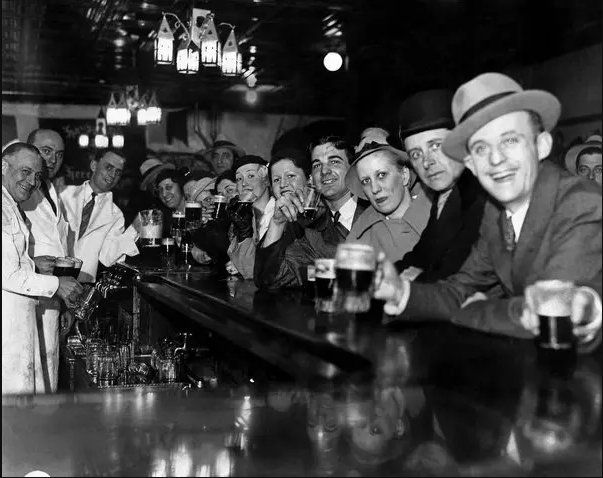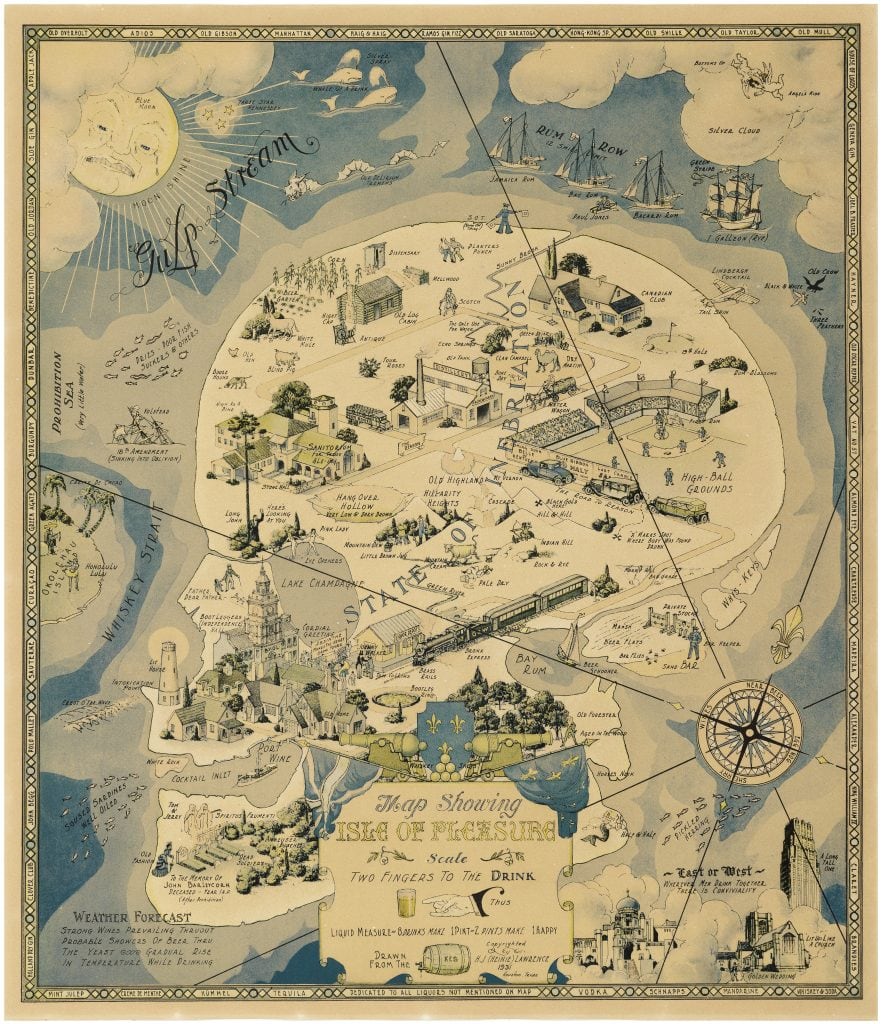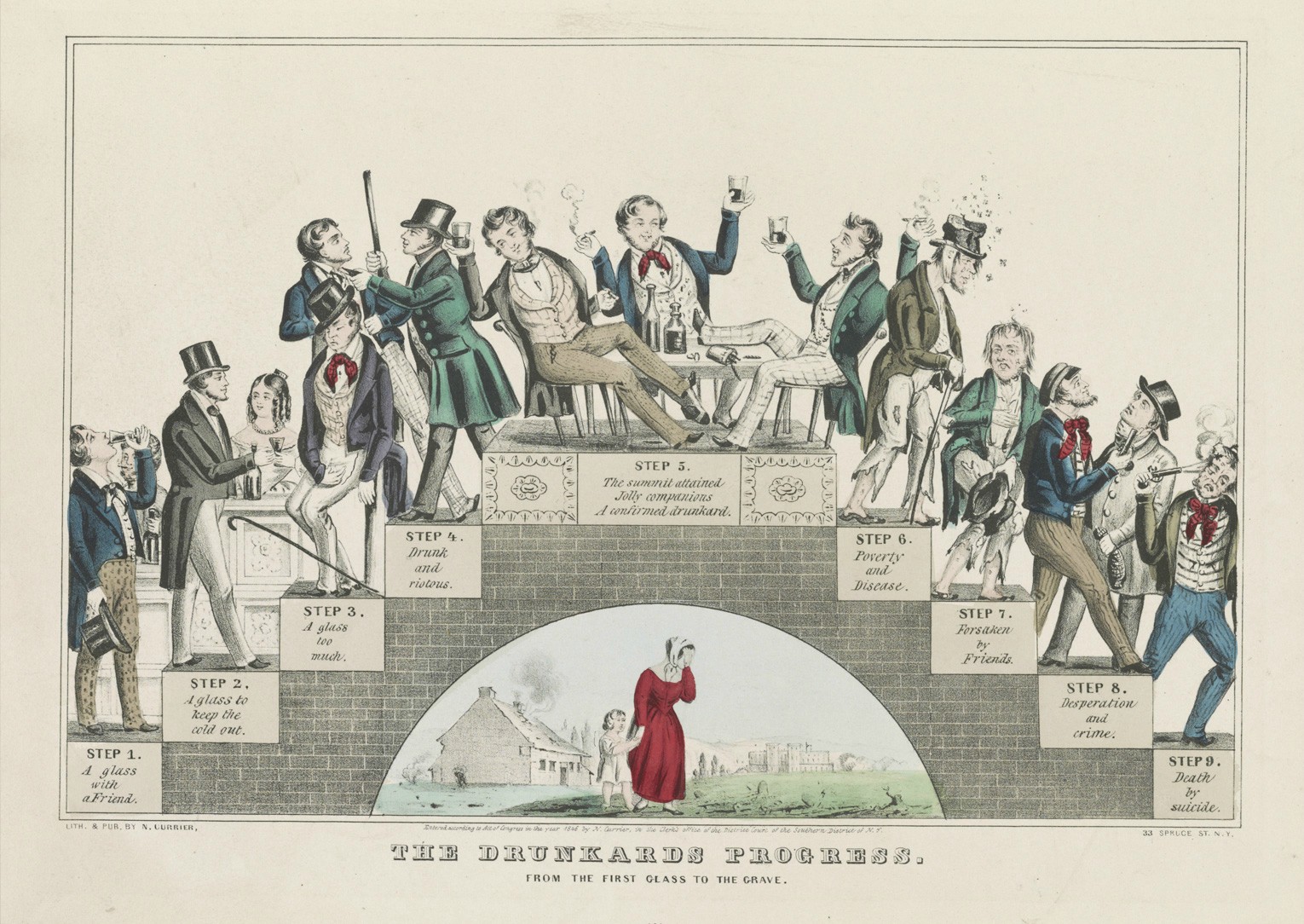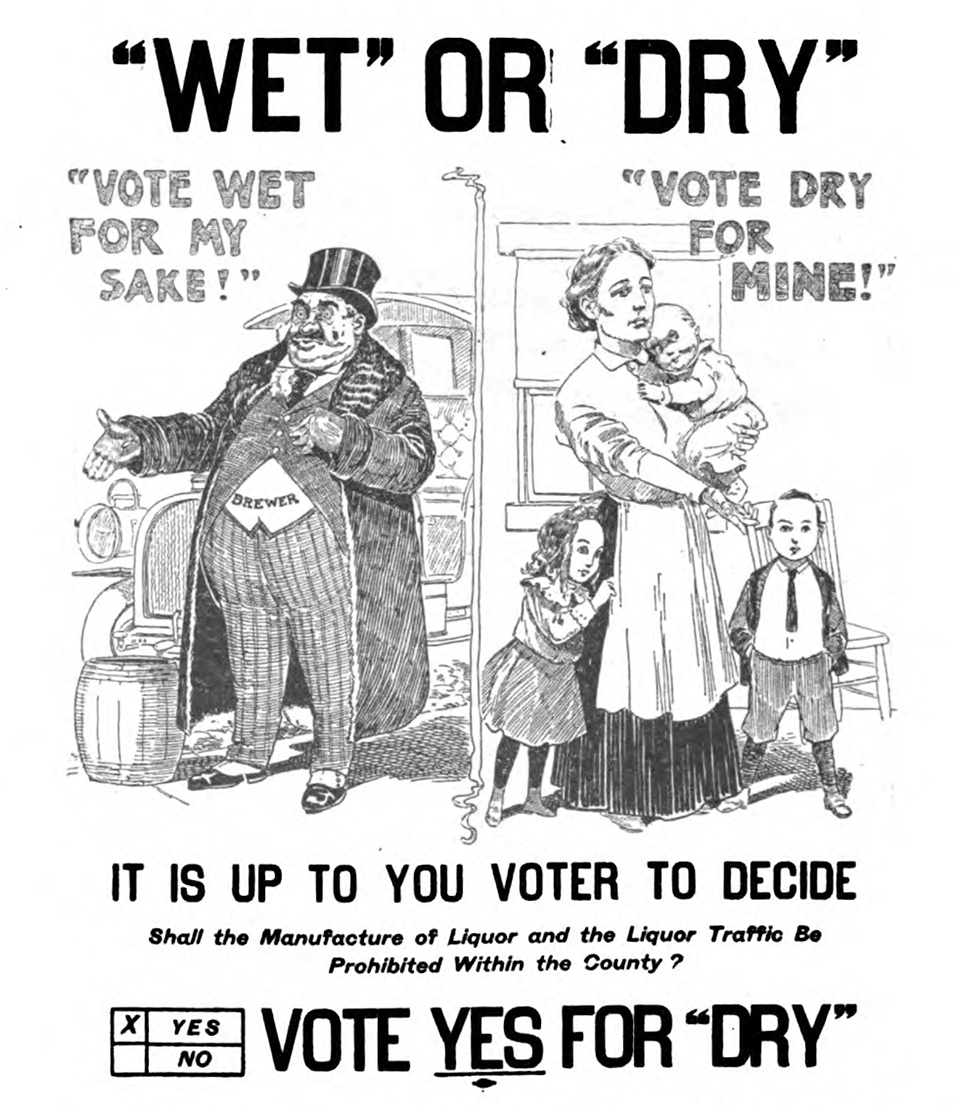The origins of prohibition
How did alcohol divide society and trigger Prohibition ?

Americans drank alcohol at every opportunity. They drank to celebrate a victory or comfort themself after a loss. Indeed, alcohol is part and parcel of their culture and history. For instance, President George Washington ensured his man had 1/2 cup of rhum daily. It was such rooted in their everyday life that in 1830 an American drank 88 bottles of whiskey per year. The United States was prone to being a Nation of Drunkards.

Two different public opinions emerged about the issue of alcohol: The Drys and the Wets. The wets are the opponents of Prohibition. This stance was mainly held by religious groups such as Roman Catholics and liturgical Protestants but also by immigrants. Their main argument is that the government shouldn't define morality and control the citizen's behavior. Moreover, they considered saloons as social hubs to bind with others. This map illustrates a country of pleasure where alcohol is allowed.

Moreover, alcohol had direct detrimental consequences and was a key factor in the national plight. Indeed, men lost their jobs, had accidents in industrial factories, and were less efficient. Furthermore, domestic violence had become more and more common hence families were abandoned and mistreated. So owing to alcohol, American Society moved toward its nadir. Hence, the Government had to stop this destructive force, that is to say, ratify the 18th Amendment and forbid alcohol.

On another hand, the Drys advocated for Prohibition. This viewpoint was maintained by various groups. This opinion was much more popular.Indeed, it has allowed to unify a lot of parties because alcohol induced a plethora of issues. The main argument is the sinful symbolism of alcohol, saloons were considered ungodly and corrupted*. Furthermore, it brings crimes, violence and accidents. Hence, without alcohol, Drys strived for a utopian society deprived of wrongdoing behavior.
GLOSSARY
- To be part and parcel of something: to be a feature of something, especially a feature that cannot be avoided
- George Washington (1732–1799) was the first President of the United States, serving from 1789 to 1797
- Prone : likely or liable to suffer from, do, or experience something unpleasant or regrettable.
- Nation of Drunkards : a society or country where alcohol consumption is deeply ingrained in the culture
- Nadir: the worst moment
- Plight: a dangerous, difficult, or otherwise unfortunate situation.
The 18th Amendment , ratified in 1919, prohibited the manufacture, sale, and transportation of alcoholic beverages..
- *Politican went in bar in order to corrupt immigrants and gain votes.
- To strive for: to make great efforts to achieve or obtain something.